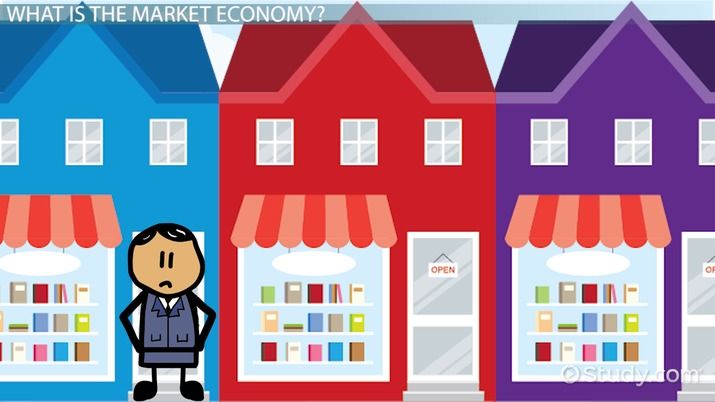What is Market
Market usually refers to a particular place where a variety or a commodity is traded. But the word market is used a little differently in economics. In economics, the market is a arrangement whereby parties may buy or sell commodity or products at a fixed price through direct or indirect bargaining.
Analyzing the definitions, some features of the market can be noticed in the economy. Such as-
- Available Products.
- Buyers and sellers of goods.
- The emergence of prices through competition between buyers and sellers.
- Buying and selling of goods at different places, even through phone or online.
The market is the heart of the economic system. All economic flows revolve around the market. Note that, In the economy, different markets are formed by buying and selling different products. Such as vegetable market, labor market, money market, Stock market, rice market, cloth market, gold market, fish market etc.
Classification of Market
Depending on the nature of the competition, the size and the scope of the time, the market can be divided into a few segments.
A. Classification by competition:
The market can be divided into two main parts based on the competition among the sellers.
- Perfect competitive market
- Imperfect competitive market.
1. Perfect Competitive Market:
A market in which there are numerous buyers and sellers and price are settled through bargaining. Purchasing and selling goods at fixed prices is called Perfect competitive market. The market for agricultural products is Perfect Can be said to be a competitive market.
2. Imperfect competitive market:
In a market where the number of buyers and sellers is low, especially the number of sellers is fewer compared to buyers. There is is a qualitative difference between the products of the sellers. In this market, price of the goods may affect by the seller.
The market of imperfect competition is divided into four types:-
(a) Monopoly Market
(b) Duopoly Market
(c) Oligopoly Market and
(d) Competitive Monopoly Market.
B. Classification by size or scope:
Markets become local, national and international by size
(1) Local market:
A market that is confined to a particular place or region of the country is called a local market. Such as: vegetable market.
(2) National market:
If the market of a commodity is spread all over the country, then the market of that commodity is called national market. Such as the market for ready-made garments market.
(3) International market:
The market for a product is not limited to within the country but extends to more than one country. For example: market of jute, shrimp, tea, leather etc.
C. Market by time range:
The market can be divided into four segments by time range. Namely-
- Very short-term Market
- Short-term market
- Long-term market
- Very long-term market.
1. Very Short-term market:
A market whose tenure is so short that the supply of goods cannot be increased or decreased during this period. It is called a very short-term market. So, the price of a commodity is determined on the basis of the decrease in demand. Such as- fish, milk and vegetables market.
2. Short-term market:
In a market where it is possible to adjust the supply of goods with the changing demand in the slightest. Only possible through change variable materials. The amount of equipment cannot be changed. This type of market, The role of demand is more effective. Such as RMG market.
3. Long-term market:
The market in which supply can be changed by responding to the demand for goods is called long-term market. Says. In the long run the size, number, equipment and even the production method of the manufacturing organization as a whole. Changes can be made to suit the supply and demand of goods. Long-term prices are determined by adjusting between variable, demand and supply. Refrigerators, Motor vehicle, television Market f etc.
4. Very long-term market:
In a long-term market, the buyer's tastes, habits, numbers, etc. change significantly. In this market, therefore, there is uncertainty in pricing. For example: Ships, Airplanes Etc. market.

